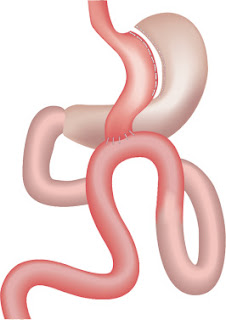Mini Gastric Bypass Surgery: A Comprehensive Guide
1. Introduction to Mini Gastric Bypass Surgery
Mini gastric bypass surgery, also known as a loop Mini Gastric Bypass in Saudi Arabia or single anastomosis gastric bypass, is a minimally invasive surgical procedure designed to help individuals achieve significant weight loss. It is considered an effective option for individuals with a body mass index (BMI) of 35 or higher who have been unsuccessful in losing weight through non-surgical methods.
2. Understanding Obesity and its Impact
Obesity is a complex medical condition that affects millions of people worldwide. It is characterized by an excessive accumulation of body fat, which can lead to various health issues such as cardiovascular diseases, diabetes, and joint problems. Traditional weight loss methods, such as dieting and exercise, may not always provide long-term results for individuals struggling with obesity, making surgical interventions like mini gastric bypass surgery a viable alternative.
3. How Does Mini Gastric Bypass Surgery Work?
Mini gastric bypass surgery involves creating a small pouch in the stomach, which is then connected to the small intestine, bypassing a significant portion of the stomach and upper intestine. This reduces the amount of food that can be consumed and absorbed, resulting in weight loss. The procedure also modifies the hormonal signals involved in hunger and satiety, further aiding in weight management.
4. Benefits of Mini Gastric Bypass Surgery
Mini gastric bypass surgery offers several benefits to individuals struggling with obesity. These include significant weight loss, improvement or resolution of obesity-related health conditions, enhanced quality of life, increased energy levels, and improved mobility. Furthermore, studies have shown that the surgery can result in long-term weight loss maintenance.
5. Risks and Potential Complications
Like any surgical procedure, mini gastric bypass surgery carries risks and potential complications. These may include infections, blood clots, nutritional deficiencies, ulcers, and dumping syndrome. It is crucial for individuals considering this surgery to discuss the potential risks and complications with their healthcare provider and weigh them against the potential benefits.
6. Preparing for Mini Gastric Bypass Surgery
Prior to undergoing mini gastric bypass surgery, individuals will go through a thorough evaluation process. This typically includes medical assessments, psychological evaluations, and nutritional counseling. It is essential to follow the pre-operative instructions provided by the healthcare team to optimize the surgical outcome and reduce the risk of complications.
7. The Mini Gastric Bypass Surgery Procedure
During the surgery, the surgeon will make small incisions in the abdomen and use laparoscopic tools to perform the procedure. The specific steps may vary slightly depending on the surgeon and the patient's unique situation. The surgery generally takes around 1 to 2 hours to complete, and most individuals can expect to stay in the hospital for a day or two post-surgery.
8. Post-Surgery Recovery and Lifestyle Changes
The recovery process after mini gastric bypass surgery is gradual, and it involves transitioning from a liquid to a solid food diet over a few weeks. Patients are advised to make permanent lifestyle changes, including adopting a nutritious diet, engaging in regular physical activity, and attending follow-up appointments with their healthcare provider. These changes are crucial for long-term weight management and overall well-being.
9. Long-Term Success and Weight Management
While mini gastric bypass surgery can provide significant weight loss, long-term success depends on the individual's commitment to adopting a healthy lifestyle. Regular exercise, balanced eating habits, and ongoing medical supervision are key factors in maintaining weight loss and preventing weight regain. Support from healthcare professionals, family, and friends can also play a crucial role in the journey towards sustained success.
10. Frequently Asked Questions (FAQs)
Q1: How long does it take to recover from mini gastric bypass surgery?
Q2: Will I need to take supplements after the surgery?
Q3: Can I get pregnant after undergoing mini gastric bypass surgery?
Q4: What if I regain weight after the surgery?
Q5: Is mini gastric bypass surgery reversible?
For detailed answers to these and more frequently asked questions about mini gastric bypass surgery, please refer to our FAQ section at the end of this article.
11. Conclusion
Mini gastric bypass surgery is a comprehensive weight loss solution that offers numerous benefits to individuals struggling with obesity. While the surgery is generally safe and effective, it is important to thoroughly discuss the procedure, risks, and potential benefits with a qualified healthcare professional. Remember, successful weight management after surgery requires a lifelong commitment to a healthy lifestyle. By making informed decisions and adopting positive habits, you can embark on a transformative journey towards better health and well-being.



Comments
Post a Comment